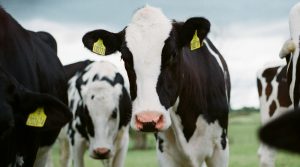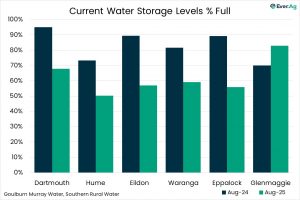
Norco Co-operative, operated in northern New South Wales, has announced it’ll pay five cents per litre more to farmers for dairy, taking the average price to 84 cents per litre.
Watch more on this story in the video above
For more Personal Finance related news and videos check out Personal Finance >>
The company has cited recent hardships faced by dairy farmers, including floods in Queensland and NSW, as well as the “rapidly increasing cost of production”.
It says the decision will see an extra $1.6 million go into the hands of farmers, with chief executive Michael Hampson indicating the higher costs will be passed onto consumers.
“We need to invest in building a sustainable future for our dairy farmers and to do that, our farmers need to make a profit,” he said in a statement.
“If they can’t, it reflects an undervaluation of their product, which then points to the supply chain needing to change this value equation.
“Consumers may see a slight price increase when buying Norco, but they can be assured that every single cent goes back to helping our farmers rebuild.”
On Wednesday, it was revealed Australians are suffering the highest year-on-year rise in food prices in more than a decade.
The latest consumer price index data from the Australian Bureau of Statistics shows the annual rate of inflation soared to its highest level since 2001, with food prices up by 4.3 per cent over the year to March, and 2.8 per cent from the previous quarter.
Senior analyst at Rabobank Michael Harvey said cost-of-production pressures on the dairy producers are being felt across the food industry, with vegetables prices up 6.6 per cent and fruit 4.9 per cent higher year on year.
“Dairy’s certainly part of the broader inflationary story. But it’s not just dairy. It’s fruit and vegetables, meat and seafood,” he told 7NEWS.com.au.
Harvey said goods produced in Australia are not exempt from global supply issues, including high fuel prices due to the war in Ukraine, which are contributing to inflation.
“A lot of it is on-farm, with higher costs of production, where it’s more expensive fuel, more expensive fertiliser, higher costs to purchase feed,” he said.
“There’s also significant cost pressures felt downstream. Their distribution costs, their COVID-related costs – they’re all higher as well.
“That’s feeding through to higher costs to consumers.”
Harvey said grocery price increases in “coming months” cannot be ruled out.
“A lot of the forces driving up the cost of food and dairy are still at play,” he said.
“There are still supply chain issues, there are still COVID-related costs and the cost of producing these products is very expensive.
“You can’t rule out further price increases down the track.”
























